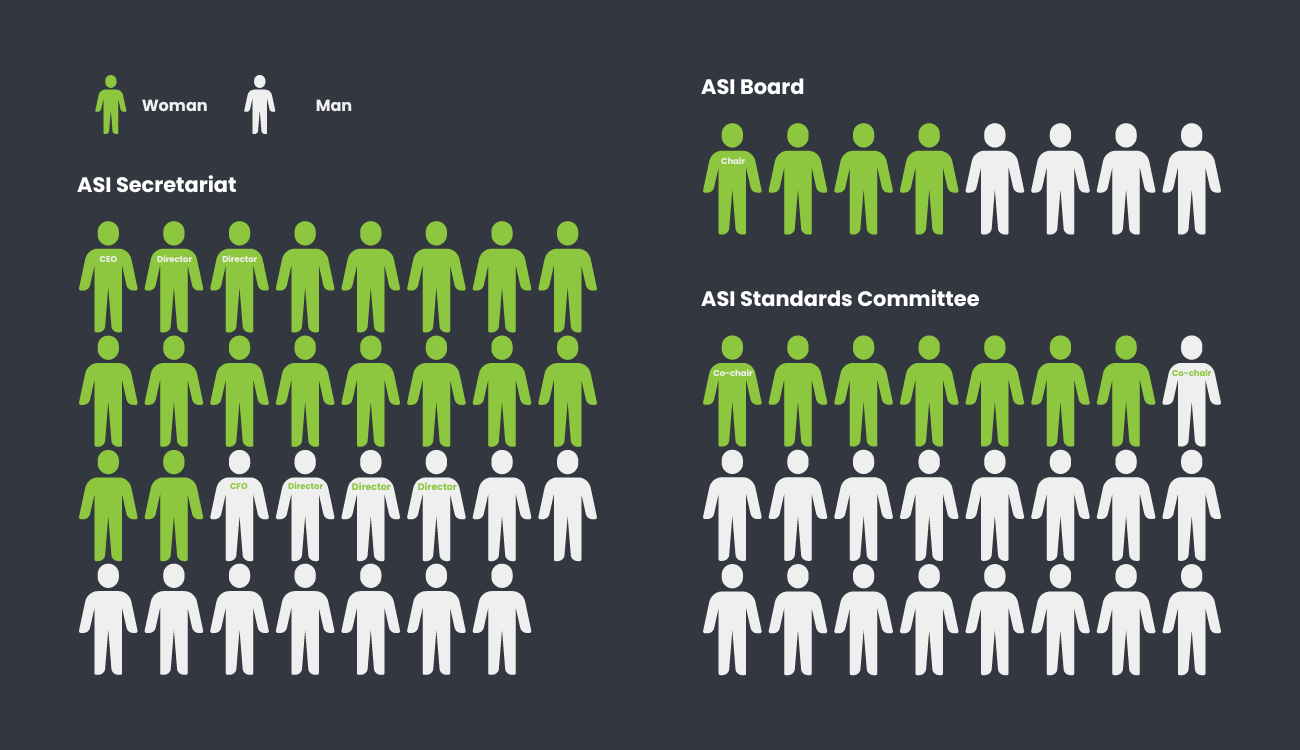Driving Gender Equity in the Aluminium Sector: ASI’s Approach
Through collaborative efforts with members, women’s groups and diverse stakeholders, ASI is driving systemic changes to advance respect and promote action for gender equity and women’s empowerment across aluminium operations and value chains. Gender equality is a human right – and upholding it unlocks sustainable development for all.
13 March 2024
What’s the Issue?
The aluminium industry has historically had a predominantly male workforce, with disparities in gender representation. Such an environment creates challenges related to gender discrimination, unequal opportunities, and obstacles to the full participation and empowerment of women. These challenges not only raise concerns from a human rights perspective but also limit the industry’s potential in attracting diverse talent, fostering innovation, and enhancing overall performance.
As companies increasingly recognise their role in advancing human rights and shaping a just society, the pursuit of gender equity has become a cornerstone of responsible business conduct. Ensuring equal rights, respect and opportunities for women and gender-diverse people is both an ethical imperative and a strategic priority for sustainable development.
What Are We Doing About It?
Governance
ASI takes a multi-stakeholder approach to governance, actively integrating diverse perspectives including women’s rights organisations into its decision-making processes. Their insights strengthen the relevance and applicability of ASI’s work on this critical issue.
Performance Standard Requirements
ASI’s updated Performance Standard Version 3 (2022) has embedded strong gender equity requirements under Principle 9 on Human Rights. The key criterion includes:
9.2 Gender Equity and Women’s Empowerment
The Entity shall:
a. Implement a programme which promotes gender equity and women’s empowerment in: i. employment practices; ii. training opportunities; iii. awarding of contracts; iv. processes of engagement; v. management activities.
And, at a minimum, addresses barriers to professional development, Discrimination, Violence and Harassment.
b. Review the programme at least every 5 years.
c. Review the programme after any changes to the Business that alter Material gender equity risk(s).
d. Review the programme on any indication of a control gap.
e. Publicly disclose the effectiveness of the measures taken to promote gender equity on an annual basis.
By requiring gender-inclusive human rights due diligence, Indigenous Peoples’ consultation processes and impact assessments (Criterion 2.6 Human Rights Impact Assessment), ASI takes a holistic approach recognising that gender cuts across all aspects of sustainable development.
Through collaborative efforts with members, women’s groups and diverse stakeholders, ASI is driving systemic changes to advance respect and promote action for gender equity and women’s empowerment across aluminium operations and value chains. Gender equality is a human right – and upholding it unlocks sustainable development for all.
ASI’s Commitment to Gender Equity Within Its Own Organisation
ASI is committed to promoting gender equity within its own organisation. As of the current date, the ASI Secretariat consists of 18 women out of 31 people total (with three more women joining in the coming weeks), the Board has 4 women out of 8 people total, and the Standards Committee has 7 women out of 24 people total. By ensuring gender diversity in its leadership and decision-making bodies, ASI is leading by example and demonstrating its dedication to the principles of gender equity and women’s empowerment.

Gender Equity Within ASI's Secretariat, Board and Standards Committee as at March 2024
Human rights, including gender equity, is a key pillar of ASI’s vision and roadmap for responsible production, sourcing and stewardship of aluminium. Robust standards, assurance processes and capacity building initiatives are breaking down barriers and empowering women as positive agents of change.
More information
Articles
SHARE THIS ARTICLE


